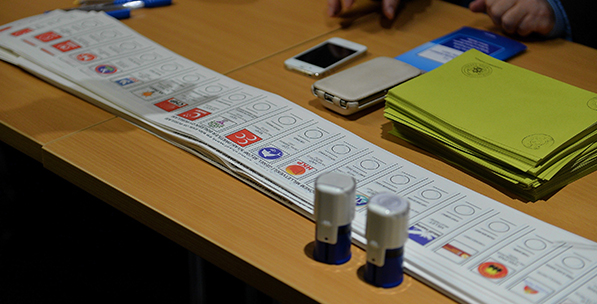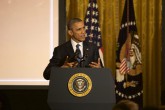The forthcoming general elections on June 7 promise to be a peculiar political event on the eve of which political parties from different ideological affiliations try to impress the electorate with specific and often populist economic pledges. “Cross-cutting issues” and “issue-based politics” have aggressively been used by the left-nationalist Republican People’s Party (CHP), right-nationalist Nationalist Movement Party (MHP), Kurdish-nationalist Peoples’ Democratic Party (HDP) and even the marginal Independent Turkey Party (BTP) in recent weeks. Key election promises expectedly included giveaways to the most needy social sectors through increases in the minimum wage, pensions and salaries of civil servants; cancellation of credit card and bank debts; tax-free fuel to farmers; fixed income guarantees for the unemployed and poor families; interest-free credit to the small- and medium-sized enterprises; inclusion of subcontracting workers to the public workforce and so on.In its part, the incumbent Justice and Development Party (AK Party) announced a rather mature and self-confident election manifesto that promised the continuation of fiscal discipline and macroeconomic stability with increasing support for research and development and the real economy. But its leaders avoided involvement in the populist redistribution race among the opposition parties to maintain a sense of prudence and credibility in the eyes of the electorate. The most interesting part in this year’s election economics concerns the lack of any macro-level governance or ideological framework that ties promised redistribution schemes together.
The AK Party government is willing to move toward a more proactive industry-technology policy and increase the relative weight of the real economy and high value-added industrial production in the overall economic framework. Yet opposition parties succumbed to the easy populism of redistributive pledges without a left-wing or pro-labor political jargon. The CHP and MHP, both share a nationalistic outlook and interventionist economic stance, target the socio-economic sectors that were the relative losers of Turkey’s structural transformation over the course of the last decade. Whereas there has been a series of strikes in Turkey’s largest automotive firms just two weeks before the elections, none of the political parties wanted to side openly with the workers on the basis of class-based politics. Turkey’s democratic politics and economy are both “projects in progress.” The economic realm was strengthened via macro-level reforms in recent years while the technological knowhow and high value-added production is still far from satisfactory levels. Turkey’s democracy, on the other hand, has been based on identity politics and ideological clashes, and concrete socioeconomic issues are just beginning to be the subject of political competition. But there is still some distance to be covered in terms of bringing detailed economic issues to the heart of the political agenda.
At this juncture I would like to attract attention to the formation of a new intellectual platform under the banner of Academy 20 (A20) in the context of Turkey’s G20 presidency. The A20 is formed by a young group of Turkish academics and intellectuals exploring the future of the global order and Turkey’s respective position in it. As the director of economic research at the Foundation for Political, Economic and Social Research (SETA), I am honored to be among the founding members. The A20 held two major conferences so far in Gebze – a major industrial hub in Turkey – and Eskişehir – a leading center of higher education – under the kind patronage of the chief advisor to the prime minister on economic issues, Professor Emine Nur Günay, and National Education Minister Nabi Avcı,. Numerous international conferences and symposiums will follow over the course of 2015 and the coming years. Formation of new trade and investment blocs across the Atlantic and the Pacific will make the conduct of industrial-technology policy even


